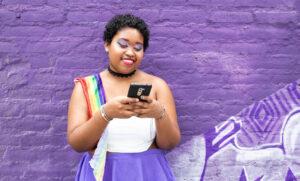
Although LGBTQIA+ people face relationship issues just like those faced by all couples, they also encounter some unique challenges that are unique to their experience. From differences in personal identities and experiences to issues like the impact of discrimination and societal stigma on the relationship, the particular challenges of LGBTQIA+ couples are important to identify. Fortunately, LGBTQIA+ affirmative therapy is an accessible way for couples to address and overcome these challenges in order to build stronger, more connected and mutually satisfying relationships. Here are just a few of the most common relationship issues that LGBTQIA+ couples may face, as well as how therapy can help address them:
1. Difficulty navigating identity. Many LGBTQIA+ individuals struggle with navigating their own identities and understanding their place in society. This can lead to questions or confusion around issues of sexual orientation or gender identity, which can cause tension and confusion in the relationship. An affirmative therapist can provide a safe and supportive space for individuals and couples to explore their identities and work through any feelings of confusion or doubt that may be impacting their relationship.
2. Overcoming discrimination and stigma. Sadly, stigma against the LGBTQIA+ community is still prevalent in many parts of the world. This can put a strain on relationships, especially if one or both partners have experienced discrimination or harassment firsthand. In therapy, couples can process their experiences and develop coping strategies to manage the impacts of discrimination and marginalization on their relationships.
3. Communication difficulties. As with any relationship, communication is a key component of a healthy and thriving partnership. However, communication can be challenging for LGBTQIA+ couples, due to differences in their backgrounds and past experiences. Therapy can be a healthy and productive space to learn tools and strategies that facilitate effective communication, including mindful listening and conflict resolution techniques.
4. Struggles with internalized homophobia. Some LGBTQIA+ individuals may experience internalized homophobia or shame surrounding their sexual orientation or gender identity. This can manifest in a variety of ways, from feelings of self-doubt and low self-worth to difficulty expressing emotions or engaging in intimacy. Therapy can help couples confront and work through these difficult feelings, promoting greater self-acceptance for both partners and deeper emotional openness within the relationship.
5. Managing the stress of coming out. Coming out, or sharing one’s sexual orientation or gender identity with others, can be a significant source of stress for LGBTQIA+ individuals. Many couples face challenges when one person is out and the other isn’t, or when each individual in the relationship has a different way of moving through the world as a queer individual. An affirmative therapist can provide support and guidance to navigate the challenges that come with this unique aspect of LBTQIA+ couples’ relationships.
While there are some challenges that come with being an LGBTQIA+ couple, therapy offers an invaluable opportunity to overcome these challenges and build stronger, healthier relationships. Whether you’re struggling with identity, discrimination, communication, internalized homophobia, or the stresses of coming out, an affirmative therapist can provide a safe and supportive space to explore your feelings and develop strategies for greater intimacy and fulfillment.




